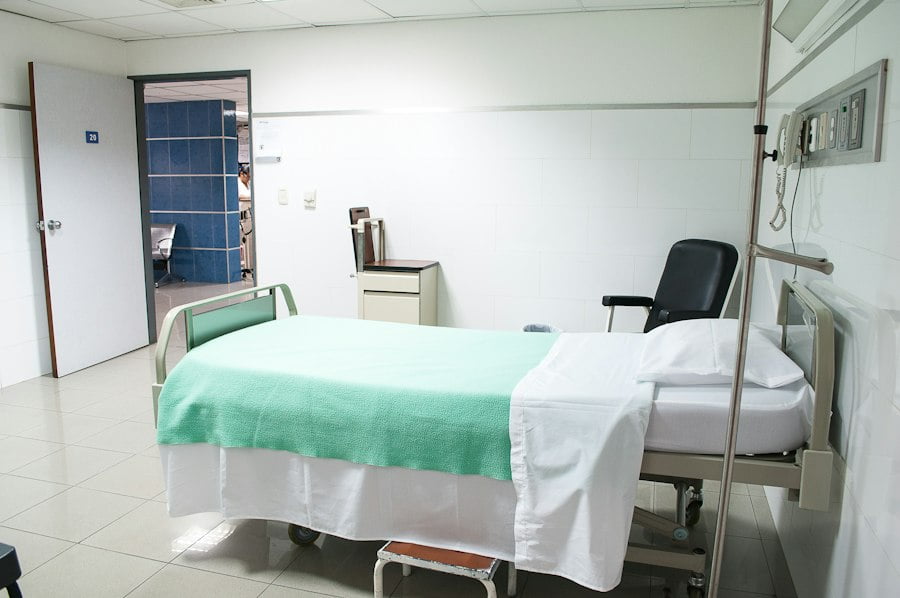
Boost Your Quality of Life: The Surprising Physical Health Benefits You Need to Know
Physical health plays a crucial role in our overall well-being and quality of life. It encompasses various aspects such as cardiovascular health, muscular strength, flexibility, and body composition. When we prioritize our physical health, we are taking proactive steps towards living a fulfilling and vibrant life.
Key Takeaways
- Physical health is crucial for a good quality of life.
- Regular exercise and a healthy diet can reduce the risk of chronic diseases.
- Physical activity can improve brain function and mental health.
- Good physical health can lead to better sleep quality and quantity.
- A healthy lifestyle can enhance immune system function and reduce pain and inflammation.
Physical Health Benefit #1: Reduced Risk of Chronic Diseases
Regular physical activity has been proven to reduce the risk of chronic diseases such as heart disease, diabetes, and cancer. According to the World Health Organization (WHO), physical inactivity is one of the leading risk factors for global mortality. Engaging in regular exercise can significantly lower the risk of developing these diseases.
Research has shown that individuals who engage in at least 150 minutes of moderate-intensity aerobic activity per week have a 20-35% lower risk of developing heart disease compared to those who are inactive. Similarly, regular physical activity can reduce the risk of type 2 diabetes by up to 50%. Furthermore, studies have found that physically active individuals have a lower risk of certain types of cancer, including breast and colon cancer.
Physical Health Benefit #2: Improved Brain Function and Mental Health
Physical activity not only benefits our physical health but also has a positive impact on our brain function and mental health. Regular exercise has been shown to improve cognitive function, memory, and attention span. It stimulates the release of chemicals in the brain that promote the growth of new brain cells and improve neural connections.
Furthermore, physical activity has been found to reduce the risk of mental health disorders such as depression and anxiety. Exercise releases endorphins, which are natural mood boosters. It also reduces levels of stress hormones like cortisol and increases the production of neurotransmitters like serotonin, which are associated with feelings of happiness and well-being.
Physical Health Benefit #3: Better Sleep Quality and Quantity
| Physical Health Benefit #3: | Better Sleep Quality and Quantity |
|---|---|
| Metrics | Description |
| Sleep Duration | The amount of time spent sleeping each night |
| Sleep Efficiency | The percentage of time spent asleep while in bed |
| REM Sleep | The amount of time spent in Rapid Eye Movement sleep, which is important for memory consolidation and learning |
| Deep Sleep | The amount of time spent in deep sleep, which is important for physical restoration and repair |
| Latency | The amount of time it takes to fall asleep after getting into bed |
| Wake After Sleep Onset | The amount of time spent awake after initially falling asleep |
| Sleep Quality | A subjective measure of how restful and restorative sleep was |
Physical activity can significantly improve sleep quality and quantity. Studies have shown that individuals who engage in regular exercise experience better sleep patterns, fall asleep faster, and have a higher quality of sleep compared to those who are sedentary.
Exercise helps regulate our body’s internal clock, known as the circadian rhythm, which controls our sleep-wake cycle. It also reduces symptoms of insomnia and sleep disorders. Incorporating physical activity into our daily routine can help us achieve a more restful and rejuvenating sleep.
Physical Health Benefit #4: Increased Energy and Stamina
Regular physical activity can increase energy levels and improve overall stamina. When we engage in exercise, our body releases endorphins, which are natural energy boosters. This surge of endorphins can leave us feeling more energized and motivated throughout the day.
Furthermore, exercise improves cardiovascular health, allowing our heart and lungs to work more efficiently. This increased efficiency leads to improved stamina and endurance. Engaging in activities such as running, swimming, or cycling can help build cardiovascular fitness and enhance overall energy levels.
Physical Health Benefit #5: Enhanced Immune System Function

Physical activity plays a vital role in enhancing immune system function and reducing the risk of illness. Regular exercise has been shown to increase the production of antibodies and white blood cells, which are essential for fighting off infections and diseases.
Studies have found that individuals who engage in moderate-intensity exercise have a lower risk of developing respiratory tract infections such as the common cold or flu. Furthermore, regular physical activity has been shown to reduce the risk of chronic inflammatory diseases such as rheumatoid arthritis.
Physical Health Benefit #6: Stronger Bones and Muscles
Engaging in regular physical activity can improve bone density and muscle strength. Weight-bearing exercises such as walking, jogging, or weightlifting stimulate the production of new bone tissue, leading to stronger bones and a reduced risk of osteoporosis.
Similarly, resistance training exercises such as lifting weights or using resistance bands can help build and strengthen muscles. This is particularly important as we age, as muscle mass naturally declines with age. By incorporating strength training into our routine, we can maintain muscle mass and prevent age-related muscle loss.
Physical Health Benefit #7: Improved Digestive Health
Physical activity has a positive impact on digestive health and can reduce the risk of digestive disorders. Regular exercise helps stimulate the muscles in our digestive system, promoting regular bowel movements and preventing constipation.
Furthermore, physical activity can help maintain a healthy weight, which is crucial for optimal digestive health. Being overweight or obese increases the risk of developing conditions such as acid reflux, gallstones, and fatty liver disease. By engaging in regular exercise and maintaining a healthy weight, we can support our digestive system and reduce the risk of these disorders.
Physical Health Benefit #8: Reduced Pain and Inflammation
Physical activity has been shown to reduce pain and inflammation in the body. Exercise stimulates the release of endorphins, which act as natural pain relievers. It also promotes blood flow to injured or inflamed areas, aiding in the healing process.
Certain types of exercise, such as yoga or Pilates, can help improve flexibility and reduce joint pain. Low-impact exercises like swimming or cycling are also beneficial for individuals with chronic pain conditions such as arthritis.
Taking Action to Improve Your Physical Health for a Better Quality of Life
In conclusion, prioritizing our physical health is essential for living a fulfilling and vibrant life. Regular physical activity offers numerous benefits, including reduced risk of chronic diseases, improved brain function and mental health, better sleep quality, increased energy and stamina, enhanced immune system function, stronger bones and muscles, improved digestive health, and reduced pain and inflammation.
To improve our physical health, it is important to incorporate regular exercise into our daily routine. This can be achieved by engaging in activities we enjoy, such as walking, swimming, dancing, or playing a sport. It is also important to find a balance between cardiovascular exercise, strength training, and flexibility exercises to reap the full benefits of physical activity.
By taking action to improve our physical health, we can enhance our overall well-being and quality of life. So let’s lace up our sneakers, grab a friend, and start moving towards a healthier and happier future.
FAQs
What are the physical health benefits of exercise?
Regular exercise can improve cardiovascular health, increase muscle strength and endurance, improve flexibility and balance, reduce the risk of chronic diseases such as diabetes and heart disease, and improve overall physical function.
How much exercise is recommended for optimal physical health?
The American Heart Association recommends at least 150 minutes of moderate-intensity aerobic exercise or 75 minutes of vigorous-intensity aerobic exercise per week, along with muscle-strengthening activities at least two days per week.
What are some examples of aerobic exercise?
Examples of aerobic exercise include brisk walking, running, cycling, swimming, and dancing.
What are some examples of muscle-strengthening activities?
Examples of muscle-strengthening activities include weightlifting, resistance band exercises, push-ups, and squats.
How does physical activity improve mental health?
Physical activity can improve mood, reduce symptoms of anxiety and depression, and improve cognitive function.
What are some other ways to improve physical health?
Other ways to improve physical health include getting enough sleep, maintaining a healthy diet, avoiding smoking and excessive alcohol consumption, and managing stress.


















